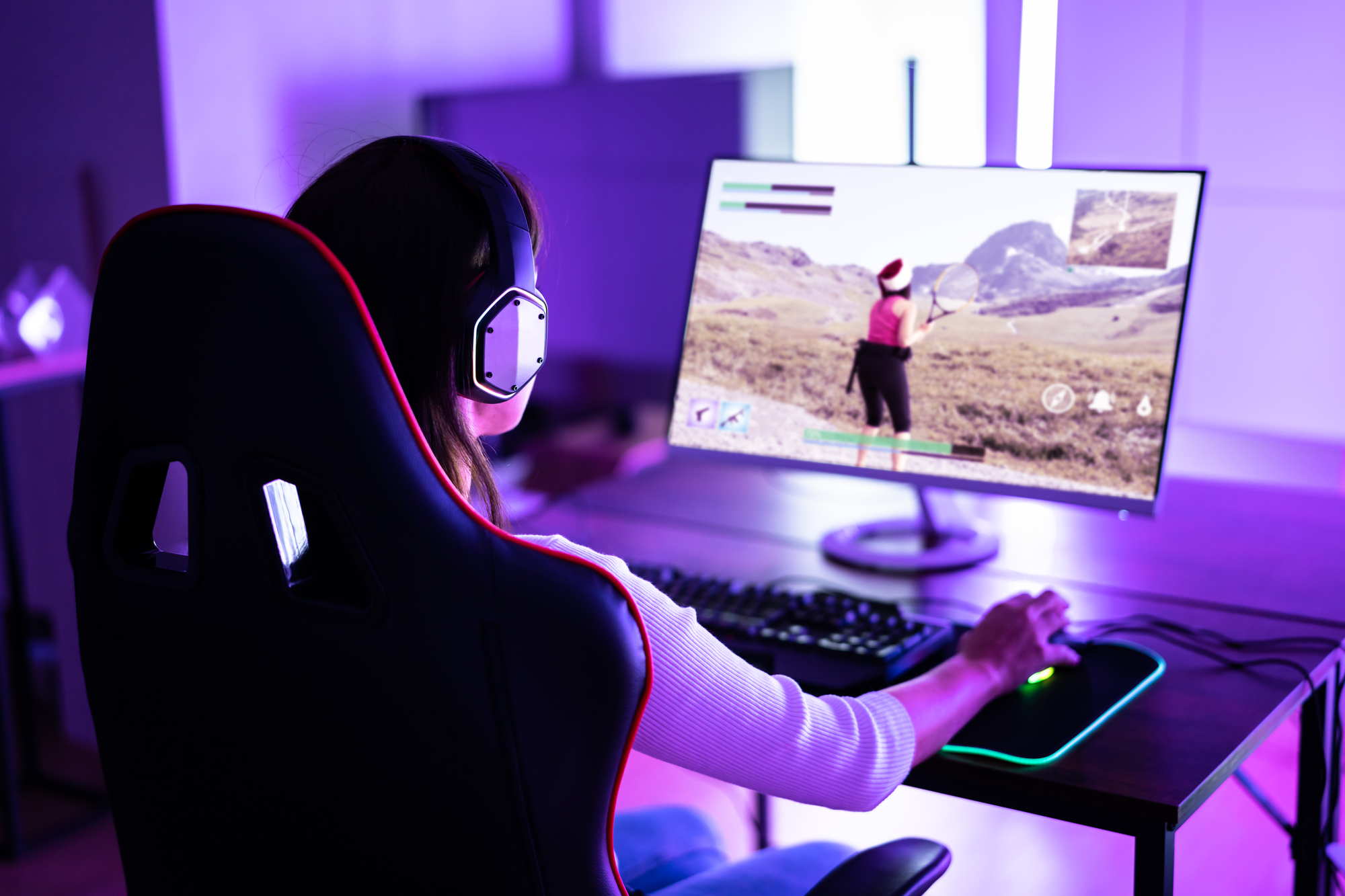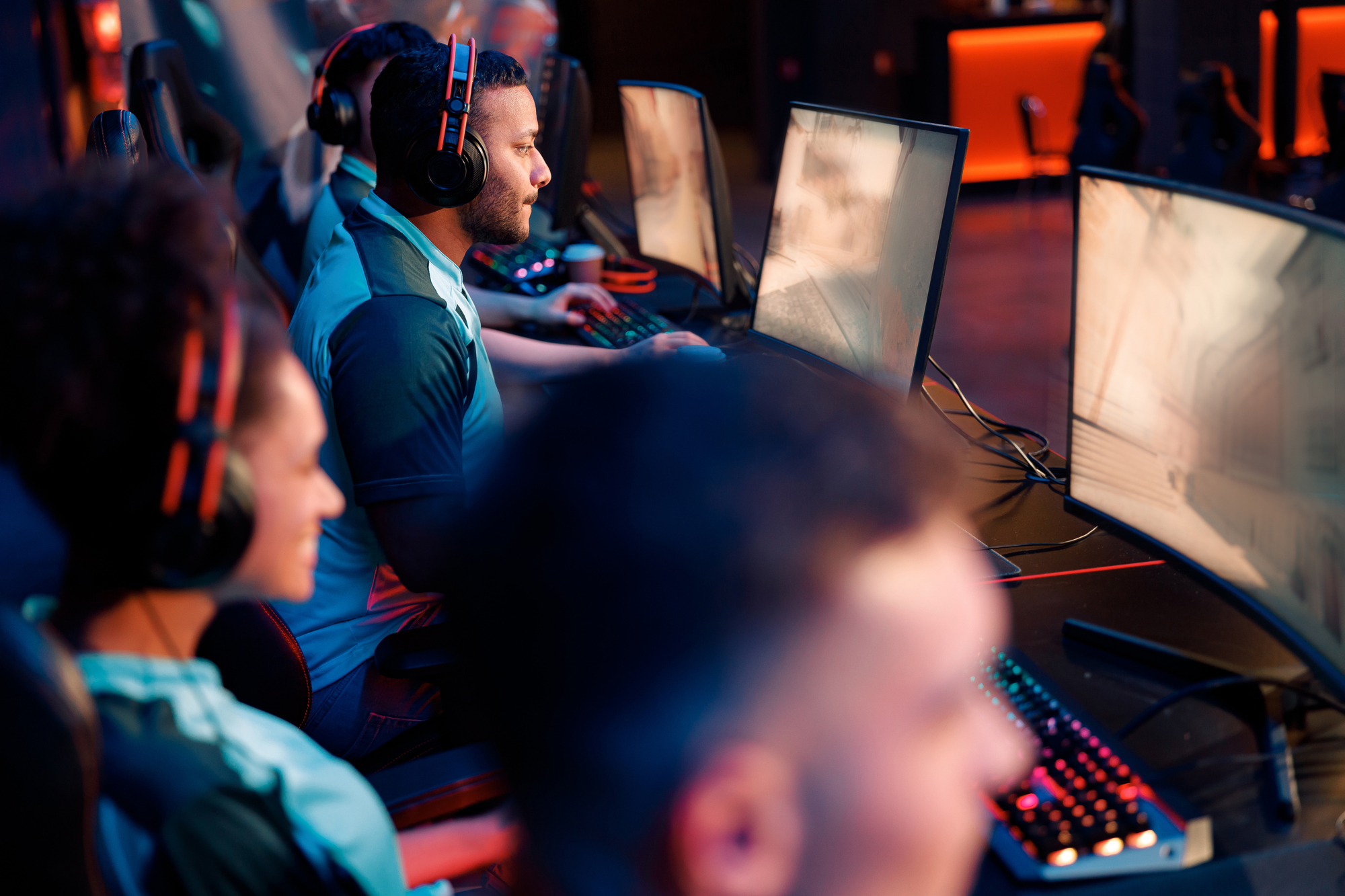Video games have long been a source of entertainment, but recent research suggests they may offer more than just fun.
Studies indicate that gaming can positively impact cognitive functions, including attention, memory, and problem-solving skills.
Playing video games regularly may enhance cognitive performance and provide measurable benefits to brain function.
Scientists are uncovering new evidence about the cognitive advantages of gaming. A meta-analysis of 63 studies on video game-based cognitive interventions found a moderate and significant training effect on overall cognitive gains.
This research highlights the potential for video games to improve various aspects of cognition, particularly in areas like attention, perception, and higher-order thinking.
The gaming industry continues to grow, and with it comes increased interest from psychologists and cognitive scientists. While some concerns persist about excessive gaming, many researchers now recognize the potential cognitive benefits.
As more studies emerge, our understanding of how video games affect the brain and mental processes continues to evolve, opening new avenues for using gaming technology in cognitive enhancement and mental health applications.
Cognitive Advancements Through Gaming
Video games can enhance various cognitive abilities. Research shows improvements in memory, attention, problem-solving, and spatial skills through gameplay.
Enhancement of Memory and Attention
Gaming can boost memory and attention. Action games often require players to track multiple objects simultaneously, improving visual attention.
Studies indicate enhanced working memory capacity in gamers.
Players must remember quest objectives, item locations, and character abilities. This constant engagement of memory processes can lead to better retention and recall.
Some games incorporate specific cognitive training elements. These target memory functions directly, potentially yielding transferable benefits to real-world tasks.
Problem-Solving and Decision-Making
Video games frequently present complex puzzles and scenarios. Players must analyze situations, form strategies, and make quick decisions.
Strategy games encourage long-term planning and resource management. This can improve executive function and reasoning skills.
Fast-paced games demand rapid decision-making under pressure. This may enhance real-world problem-solving abilities and reaction times.
Puzzle games often require creative thinking to overcome obstacles. This can foster flexible cognitive approaches to challenges outside of gaming contexts.
Perceptual and Spatial Abilities
Many games involve navigating 3D environments. This can improve spatial cognition and mental rotation skills.
Action games can enhance visual perception. Players often need to spot small details or changes in complex scenes quickly.
Hand-eye coordination can improve through gaming. This is especially true for games requiring precise controller inputs or mouse movements.
Some studies suggest that spatial skills gained from gaming may transfer to tasks like surgical techniques or piloting vehicles.
Brain imaging research has shown changes in neural activity and structure related to these perceptual and spatial improvements in gamers.
Psychological and Emotional Implications
Gaming influences psychological well-being and emotional states in various ways. Research highlights several key impacts on mental health and social functioning.
Emotional Regulation and Relaxation
Video games offer a unique outlet for stress relief and emotional management. Players often report feeling calmer after gaming sessions, as the immersive nature of games provides a mental break from daily pressures.
This escapism can be beneficial when used in moderation.
Games with peaceful environments or relaxing mechanics, such as building or exploration games, can lower anxiety levels. The sense of achievement from overcoming in-game challenges boosts self-esteem and confidence.
Some games incorporate mindfulness techniques, teaching players to focus on the present moment. This skill transfers to real-life situations, helping individuals manage stress more effectively.
Social Connections and Skills
Multiplayer games foster social bonds and improve communication abilities. Online gaming communities provide spaces for people to connect, especially beneficial for those who struggle with face-to-face interactions.
Cooperative gameplay enhances teamwork and leadership skills. Players learn to coordinate strategies, delegate tasks, and support team members. These social competencies often translate to real-world scenarios.
Gaming can help shy individuals build confidence in social settings. The anonymity of online interactions allows people to practice social skills in a low-pressure environment.
Impact on Mood Disorders
Research suggests that gaming can have positive effects on depression and anxiety. The engaging nature of games can lift mood and provide a sense of accomplishment, which is valuable for those battling depressive symptoms.
Some games are designed to target specific mood disorders. These therapeutic games use principles of cognitive behavioral therapy to help players develop coping strategies and challenge negative thought patterns.
While gaming can be beneficial, it’s important to note that excessive play may exacerbate symptoms in some cases. Balance and moderation are key to harnessing the positive psychological impacts of gaming.
Controversies and Considerations in Gaming
Gaming’s cognitive effects spark debate among researchers and the public. Studies show mixed results, leading to ongoing discussions about potential benefits and drawbacks.
Debating Violent Video Games and Aggression
Research on violent video games and aggression yields conflicting findings. Some studies suggest a link between playing violent games and increased aggressive thoughts or behaviors. Other research finds no causal relationship.
Critics argue that exposure to violent content desensitizes players. Proponents counter that most gamers can distinguish fantasy from reality. Age ratings and parental controls aim to limit access to mature content.
The debate continues as more long-term studies are needed. Cultural and individual factors likely play a role in how violent games affect players.
Potential for Cognitive Overload and Addiction
Excessive gaming can lead to cognitive overload and addiction-like behaviors in some individuals. Extended play sessions may impair attention and working memory.
The World Health Organization recognizes “gaming disorder” as a mental health condition. Symptoms include loss of control over gaming habits and negative impacts on daily life.
Risk factors for problematic gaming include:
- Depression or anxiety
- Poor impulse control
- Social isolation
Gaming companies face pressure to implement safeguards against addictive design. Some games now include play-time limits and reminders to take breaks.
Balancing Screen Time and Physical Health
Too much gaming can disrupt sleep patterns and reduce physical activity.
The American Academy of Pediatrics recommends no more than 1-2 hours of screen time daily for children.
Extended gaming sessions may contribute to:
- Eye strain
- Poor posture
- Repetitive stress injuries
Balancing gaming with other activities is key.
Active video games can promote movement, but should not replace traditional exercise.
Parents and gamers should set healthy boundaries around play time.
Regular breaks, proper ergonomics, and outdoor activities help offset potential negative effects.












